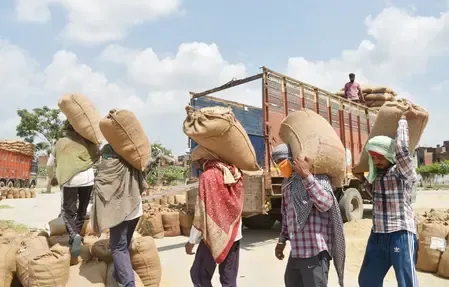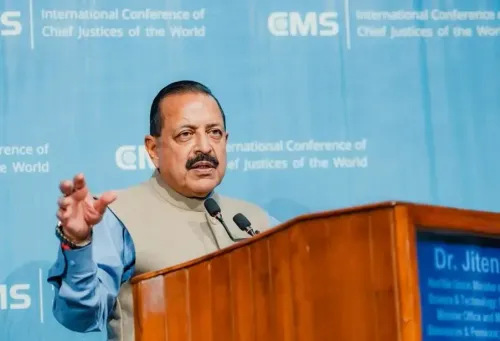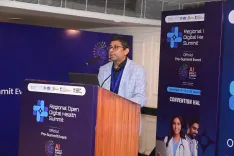Is South Korea Committed to a $100 Million Contribution for Global Health Efforts?

Synopsis
Key Takeaways
- South Korea's $100 million pledge to the Global Fund begins in 2026.
- The initiative targets major infectious diseases like AIDS, tuberculosis, and malaria.
- The Global Fund has saved around 70 million lives since its inception in 2002.
- South Korea aims to increase involvement of local companies in global health efforts.
- Concerns over arms trade and its impact on security were voiced at the UNSC.
Seoul, Nov 22 (NationPress) South Korea has made a significant commitment by pledging $100 million to the Global Fund, aimed at combating major infectious diseases over the next three years, starting in 2026, as reported by the foreign ministry on Saturday.
Kweon Ki-hwan, the deputy minister for multilateral global affairs, made this announcement during the Global Fund's eighth replenishment summit on Friday in Johannesburg, South Africa, according to Yonhap news agency.
Founded in 2002, the Global Fund stands as the world's largest public-private partnership dedicated to the prevention and eradication of AIDS, tuberculosis, and malaria.
Kwon emphasized the significant achievements of the Global Fund over the past two decades, which include saving an estimated 70 million lives from these diseases. He also pointed out the necessity for enhanced efficiency, the introduction of innovative health products, and improvements in program delivery in response to a shifting global development landscape.
The South Korean government expressed its intention to facilitate greater involvement of Korean companies in the Global Fund's disease-response initiatives.
In related news, a senior South Korean diplomat has urged for international collaboration to ensure effective implementation of U.N. Security Council (UNSC) arms embargoes to tackle the illicit trade of small arms and light weapons, as stated by the foreign ministry.
Second Vice Foreign Minister Kim Jina highlighted these concerns during a UNSC meeting focused on small arms control at the U.N. headquarters in New York, stressing that such trade flows contribute to the escalation of armed violence and transnational crimes, obstructing sustainable development efforts.
Kim reiterated the critical need to effectively enforce UNSC arms embargoes and to navigate the challenges and opportunities presented by emerging technologies.
After the UNSC session, Kim engaged with U.N. Deputy Secretary-General Amina J. Mohammed, emphasizing the importance of strengthening multilateralism to address shared challenges facing the global community.









